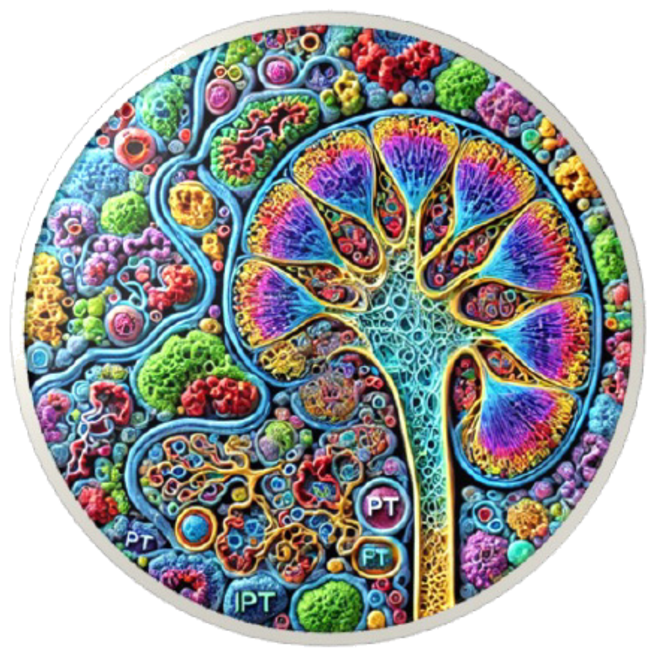Researchers at Children’s Hospital of Philadelphia (CHOP) found that children and adolescents who had SARS-CoV-2 infection (COVID-19) were at a higher risk of developing kidney-related complications, especially if they have preexisting chronic kidney disease (CKD) and experienced decreased kidney function while actively infected. The findings were published recently in JAMA Network Open.
Although COVID-19 has generally been less severe in children than adults, its impact is hard to fully assess due to widely varying symptoms and unclear mechanisms of the virus. Since studies in adults show a higher risk of adverse kidney outcomes after a COVID-19 infection, researchers sought to better understand whether COVID-19 was also associated with an increased risk of adverse kidney outcomes in children and adolescents, particularly among those with preexisting kidney disease or acute kidney injury.
In the retrospective cohort study, researchers analyzed data from more than 1.9 million US children and adolescents, leveraging data from 19 health institutions in the National Institutes of Health Researching COVID to Enhance Recovery (RECOVER) initiative collected between March 1, 2020, to May 1, 2023.

“Our findings show that pediatric patients may be at increased risk for kidney problems following SARS-CoV-2 infection, particularly children with existing kidney disease or those who experience kidney injury during the acute infection,” said Michelle Denburg, MD, MSCE, a senior study author and attending physician in the Division of Nephrology. “Monitoring of kidney function and early detection of CKD can help mitigate its long-term kidney and cardiovascular complications.”
The researchers noted that although the risk of adverse kidney outcomes was increased, it remains uncommon in children without prior CKD or acute kidney injury. They recommend clinicians monitor children and adolescents who had severe infection or kidney injury and those with underlying kidney disease.

They also emphasized that more research is needed to better understand why COVID-19 affects the kidneys, noting that the virus can remain in the body after symptoms go away, potentially leading to direct injury of kidney tissue. They also said long-lasting inflammation caused by the infection could stress the kidneys and emphasized that further studies are needed to understand the drivers of their observed associations.
The research was funded by agreement his research was funded by agreement OTA OT2HL161847-01 from the NIH as part of the Researching COVID to Enhance Recovery (RECOVER) research initiative.
Li L, Zhou T, Lu Y, et al. “Kidney Function Following COVID-19 in Children and Adolescents.” JAMA Netw Open. April 11, 2025. DOI: 10.1001/jamanetworkopen.2025.4129.
Featured in this article
Experts
Specialties & Programs
Researchers at Children’s Hospital of Philadelphia (CHOP) found that children and adolescents who had SARS-CoV-2 infection (COVID-19) were at a higher risk of developing kidney-related complications, especially if they have preexisting chronic kidney disease (CKD) and experienced decreased kidney function while actively infected. The findings were published recently in JAMA Network Open.
Although COVID-19 has generally been less severe in children than adults, its impact is hard to fully assess due to widely varying symptoms and unclear mechanisms of the virus. Since studies in adults show a higher risk of adverse kidney outcomes after a COVID-19 infection, researchers sought to better understand whether COVID-19 was also associated with an increased risk of adverse kidney outcomes in children and adolescents, particularly among those with preexisting kidney disease or acute kidney injury.
In the retrospective cohort study, researchers analyzed data from more than 1.9 million US children and adolescents, leveraging data from 19 health institutions in the National Institutes of Health Researching COVID to Enhance Recovery (RECOVER) initiative collected between March 1, 2020, to May 1, 2023.

“Our findings show that pediatric patients may be at increased risk for kidney problems following SARS-CoV-2 infection, particularly children with existing kidney disease or those who experience kidney injury during the acute infection,” said Michelle Denburg, MD, MSCE, a senior study author and attending physician in the Division of Nephrology. “Monitoring of kidney function and early detection of CKD can help mitigate its long-term kidney and cardiovascular complications.”
The researchers noted that although the risk of adverse kidney outcomes was increased, it remains uncommon in children without prior CKD or acute kidney injury. They recommend clinicians monitor children and adolescents who had severe infection or kidney injury and those with underlying kidney disease.

They also emphasized that more research is needed to better understand why COVID-19 affects the kidneys, noting that the virus can remain in the body after symptoms go away, potentially leading to direct injury of kidney tissue. They also said long-lasting inflammation caused by the infection could stress the kidneys and emphasized that further studies are needed to understand the drivers of their observed associations.
The research was funded by agreement his research was funded by agreement OTA OT2HL161847-01 from the NIH as part of the Researching COVID to Enhance Recovery (RECOVER) research initiative.
Li L, Zhou T, Lu Y, et al. “Kidney Function Following COVID-19 in Children and Adolescents.” JAMA Netw Open. April 11, 2025. DOI: 10.1001/jamanetworkopen.2025.4129.
Recommended reading
Pioneering Single Cell Kidney Atlas Developed by CHOP and Penn Medicine Researchers

Researchers revealed the most extensive single cell atlas of the human kidney - predicting chronic kidney disease (CKD) progression earlier in its course.
Contact us
Jennifer Lee
Division of Nephrology